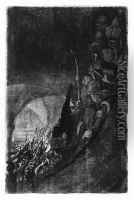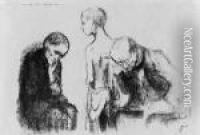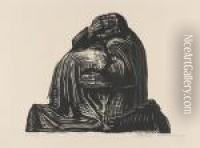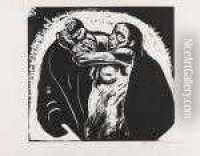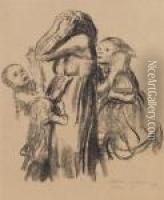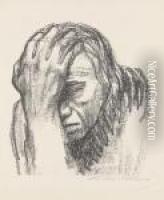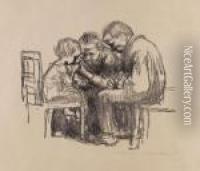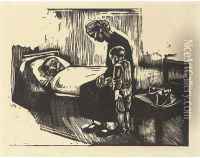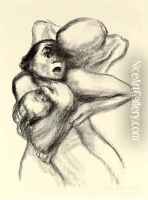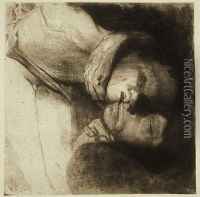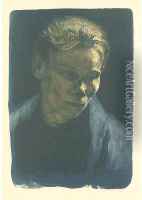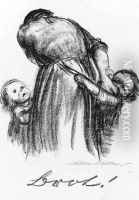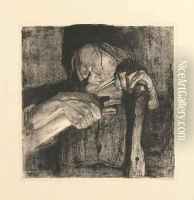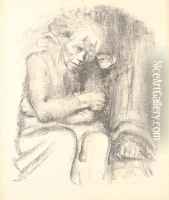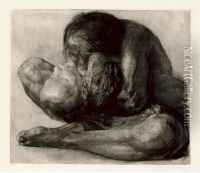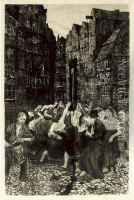Kathe Kollwitz Paintings
Käthe Kollwitz was a German artist, who achieved worldwide recognition for her powerful works on the themes of poverty, hunger, and war. Born on July 8, 1867, in Königsberg, East Prussia (now Kaliningrad, Russia), Kollwitz was trained at art schools in Germany and Belgium. She was married to Karl Kollwitz, a doctor, who worked with the poor in Berlin, an experience that greatly influenced her artistic themes.
Kollwitz's primary focus was on printmaking, including etching, lithography, woodcuts, and later, sculpture. Her first major cycle of works, 'The Weavers' (1893–1897), was inspired by the weavers' uprising in Silesia and reflected her socialist leanings and empathy for the working class. Her next significant work, 'The Peasant War' series (1902–1908), further emphasized these themes, depicting the brutal suppression of the German peasants' revolt in the 16th century.
The death of her younger son, Peter, in World War I profoundly affected Kollwitz, leading her to create a body of work that dealt with grief and loss. This personal tragedy inspired one of her most famous pieces, 'The Grieving Parents', a memorial for her son and the other soldiers who died in the war. Situated in the Vladslo German war cemetery in Belgium, the sculpture features two figures, representing herself and her husband, looking down in despair.
Throughout her career, Kollwitz was also an active advocate for women's rights and social justice. Her commitment to these causes was reflected in both her art and her participation in various progressive organizations. Despite facing censorship during the Nazi regime, which considered her art as 'degenerate', Kollwitz continued to produce work that was unflinchingly critical of social injustice and human suffering.
Käthe Kollwitz's impact on the art world was significant, not only for her mastery of graphic arts but also for the emotional depth and political fervor of her subject matter. Her work continues to resonate with audiences today, serving as a powerful reminder of the human cost of social and political turmoil. Kollwitz passed away just weeks before the end of World War II on April 22, 1945, in Moritzburg, Germany.
